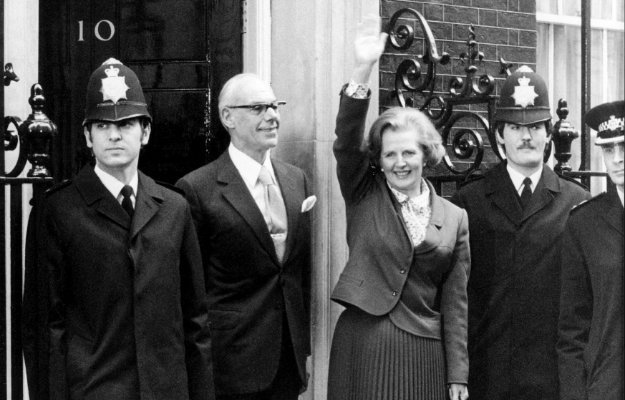Ahead of a talk on the same subject on 23 May, Dr Ben Worthy discusses the purpose of prime ministerial memoirs is – how these apparently personal histories provide insight and are also used to justify, explain and establish a leader’s persona and, most importantly, their place in history.

We are all waiting with baited breath for David Cameron’s possibly-soon-to-be-published memoirs. Prime ministerial memoirs are now an event, and the media and the public await revelations from the moment they leave office. Nevertheless, they carry a reputation for being pretty dull and unrevealing. ‘Traditional political memoirs’ Tony Blair argued in his own book, are ‘rather too easy to put down’. So why would a prime minister want to write them (and go to the trouble of buying a new shed to write them in)?
For readers, memoirs can offer a unique insight into seeing through their eyes. They can help us to see how they felt in office and their views of their own triumphs and, more rarely, their tragedies. They do come, however, with a rather big health warning. Like all memoirs, the reminisces of prime ministers can be flawed by poor memory, often sharpened by the politics of revenge and the need to be shown well in the light of history.
Money plays a part. Lloyd George, who wrote the first real blockbuster memoirs in the 1930s, was paid record breaking amounts of money for both the books and serialisation rights. Later Margaret Thatcher’s £3.5 million earnings and Blair’s reported £4.6 million advance caused controversy (Cameron got ‘only’ a third of that, it seems). Blair donated his proceeds to the Royal British legion.
If asked why they were writing, most political leaders would say they want to ‘set the record straight’. Sometimes, this can be framed as an almost ‘moral’ claim to tell some sort of ‘truth’ (when everyone else hasn’t been). Lloyd George declared that he owed it to ‘the public and posterity’ to ‘tell the whole truth’ after being slandered and attacked for his conduct of the First World War by military leaders.
Every prime minister since has followed a similar line and we have learned things we didn’t know. We know that when Harold Macmillan famously told a heckler they ‘never had it so good’ he meant it as warning not a celebration. Margaret Thatcher felt everyone misunderstood her quoting of Francis of Assisi on the steps of Downing Street. Tony Blair revealed that he always saw himself as being ‘married’ to the British people. We even know some things we didn’t want to know-such as Blair’s revelation that all the travelling messed with his ‘digestive system’.
Whether they are really setting straight is questionable. Selective recall and forgetting is a particular problem for politicians. Anthony Eden managed to not mention in his reflections the collusion with France and Israel that ended his career. Blair’s informal, almost chatty tone changes to ‘Anthony Blair the lawyer’ in his chapters on Iraq-and when he talks about what he calls the ‘dossier’ most readers would recall it better as the ‘dodgy dossier’. Sometimes setting the record descends into some pretty serious wishful thinking, as when Thatcher writes of how the Poll Tax would have worked out if it had been given a few years more to run.
For a leader in retirement, the writing of a memoir is above all a final political act on the stage and final appeal to history and the public. Some then gather dust in bargain bins but some leader’s recollections can determine how we see our history. As Churchill used to warn other politicians ‘all right, I shall leave it to history, but remember that I shall be one of the historians’.
Ben Worthy is giving a talk on prime ministerial memoirs at Birkbeck College, University of London on 23 May 6pm London as part of Birkbeck Arts Week with Birkbeck Politics Writer in Residence Sian Norris. You can book tickets here.


